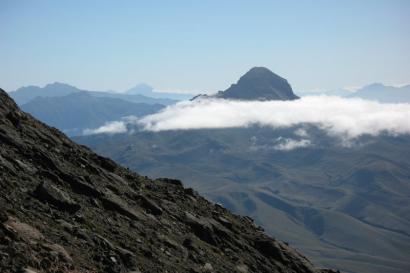When I went to the Galapagos Islands, I wasn’t sure what to expect. I was thinking it’d be a little like my trip to the Amazon rainforest three weeks before, where my group and I were living in small wooden structures with limited access to electricity. Our free time was largely spent in nature; we went for hikes, swam in the nearby river (a tributary to the Amazon river), and climbed up to the canopy, where we could see the entire forest laid out below us. I was expecting my time in the Galapagos to be similar.
In a way, it was. I definitely spent a lot of time outside, hiking and looking at the natural beauty of the islands. In another sense though, it was completely different: the vibe was much more one of a beach vacation than an experiential trip organized through a biodiversity research station. Honestly, this difference makes a lot of sense: the trip to the Amazon was organized through a biodiversity research station. The Galapagos trip, on the other hand, was through a tour company. It was still excellent: we snorkeled in the clearest water I’ve ever seen, explored a cave that had been formed by the magma of a volcanic island, and spent hours on the water, sunbathing, swimming, and feeling the wind as we sped through the ocean. It was just a very different vibe from the one I’d experienced in the Amazon. There was much more of an understanding that we were there as tourists, paying to see the wildlife.
It was a weird feeling, but an honest one, and that honesty was refreshing. A lot of travelling is a gray area; you don’t quite know where you stand. It’s hard to know whether you should try to blend in and pretend to be a local or put on a hiking backpack and lean into your tourist status. That ambiguity didn’t exist in the Galapagos, where wherever I went my sunburn and swimsuit gave me away. I didn’t need to worry about how I was perceived; I could just relax at the beach without trying to hide the amazement with which I viewed the wildlife of the islands. When a sea lion tried to steal a woman’s slippers, everyone on the beach was as as awed as I was; it was nice being in a place where nearly no one was a local. There was an acknowledgement that nature had been there first, and that making space for the natural world was just the cost of existing on the islands. It was a beautiful worldview in a beautiful place which, in a way, served as an alternative vision of a better world.

Louis Herman
<p>Hi! I'm a current junior at the University of Rochester studying the history of early modern globalization, with a specific focus on links between Asia and Latin America. When I'm not busy writing papers, you can probably find me lying down on the beach, soaking in the sunlight, and reading sci-fi.</p>







